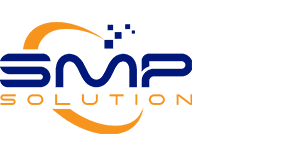Discover the challenges and opportunities of artificial intelligence (AI) in Canada’s digital economy. Explore the legal and regulatory landscape, data protection concerns, ethical considerations, and the evolving role of AI in various sectors.
With intense global competition to lead in AI, artificial intelligence has been a driving force in digital economy innovation. Canada, aspiring to be among global AI leaders, has received substantial funding from federal and provincial governments, as well as investments and research funding from universities, to develop innovative AI programs.
Different from automation, AI poses unique legal and regulatory challenges. One major hurdle is the inadequacy of rigid legal approaches that quickly become outdated with the introduction of new and rapidly evolving technologies.
What is AI?
AI encompasses a broad range of intelligent functions such as pattern recognition, optimization, natural language processing, decision-making, and hypothesis testing. The goal of AI is for machines to exhibit human-like behavior or perform actions requiring functional intelligence, inspired by human brains and behaviors.
As machines become more capable, tasks previously considered AI-based may no longer be classified as such. For instance, optical character recognition, once groundbreaking, is now considered routine technology, no longer falling under the AI umbrella.
AI has become ingrained in our modern digital world. From facial and voice recognition in smartphones to predictive analytics used by retailers, AI offers benefits like reduced technology infrastructure costs, increased productivity, enhanced operational resilience, and lower risk exposure.
What is Canada’s legal stance on AI?
In the legal field, AI aids in tasks like document review, legal research, drafting pleadings, and case analysis. However, the ethical implications of AI technology in legal services raise important considerations that demand attention.
While there is limited legislation specifically addressing AI in Canada, soft laws such as data governance standards, ethics codes, and regulatory frameworks have emerged. These guidelines provide practical suggestions but lack clarity and enforceability.
The legislative challenge lies in balancing social and economic interests while regulating AI to protect the public without stifling innovation. Privacy concerns, ethics, and human rights are at the forefront, requiring comprehensive review of data protection laws and the application of existing laws to ensure oversight and enforcement.
Canada is in the early stages of developing laws for AI and its advancements. As technology evolves, new challenges will arise, necessitating ongoing adaptation of legal structures. Instead of viewing these challenges as obstacles, they should be seen as part of the continuous process of human growth and development, driving flexibility and innovation essential for our existence.

